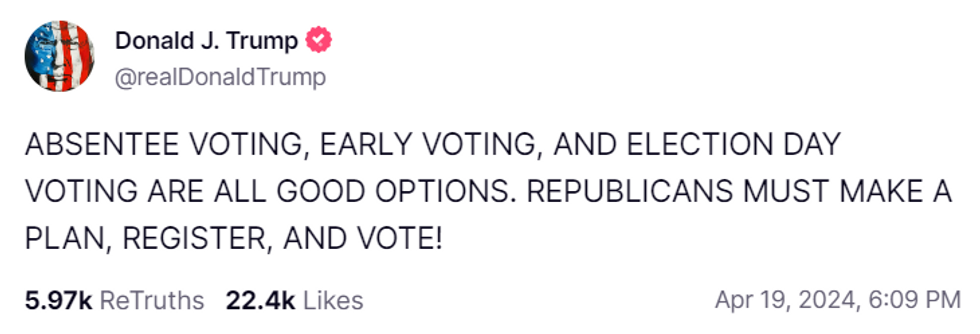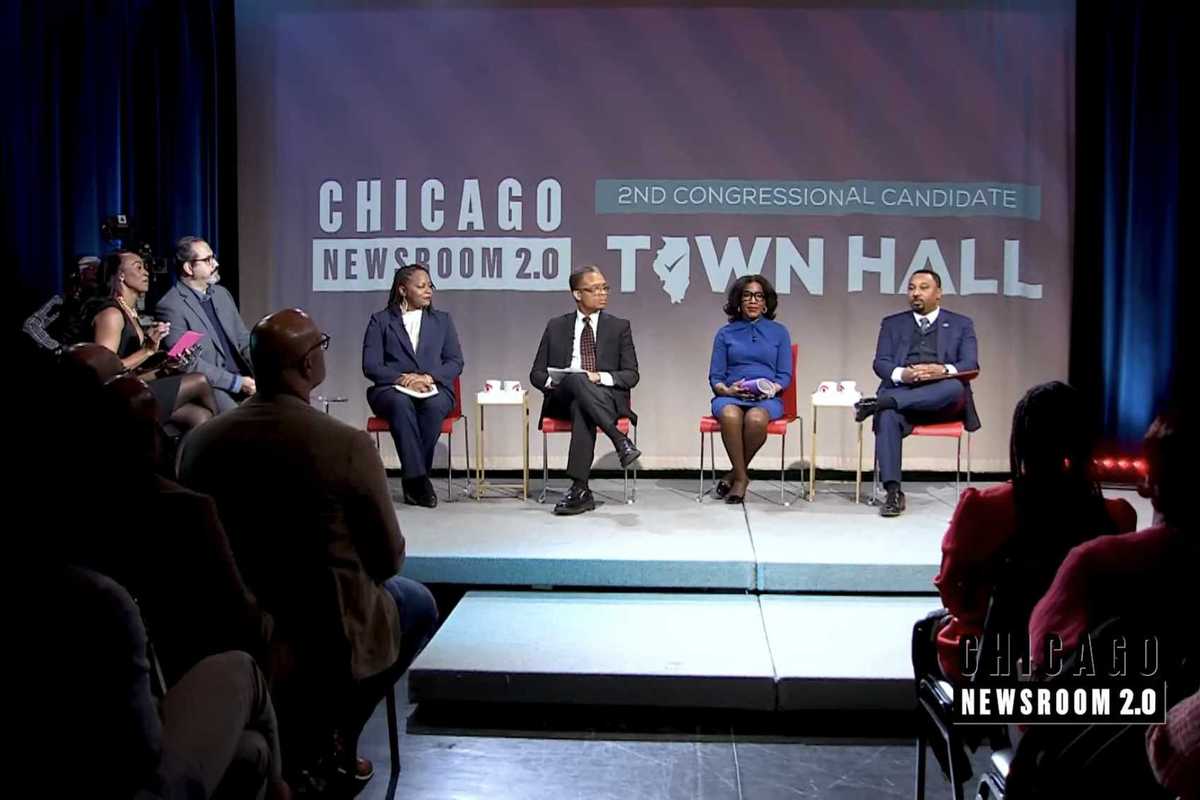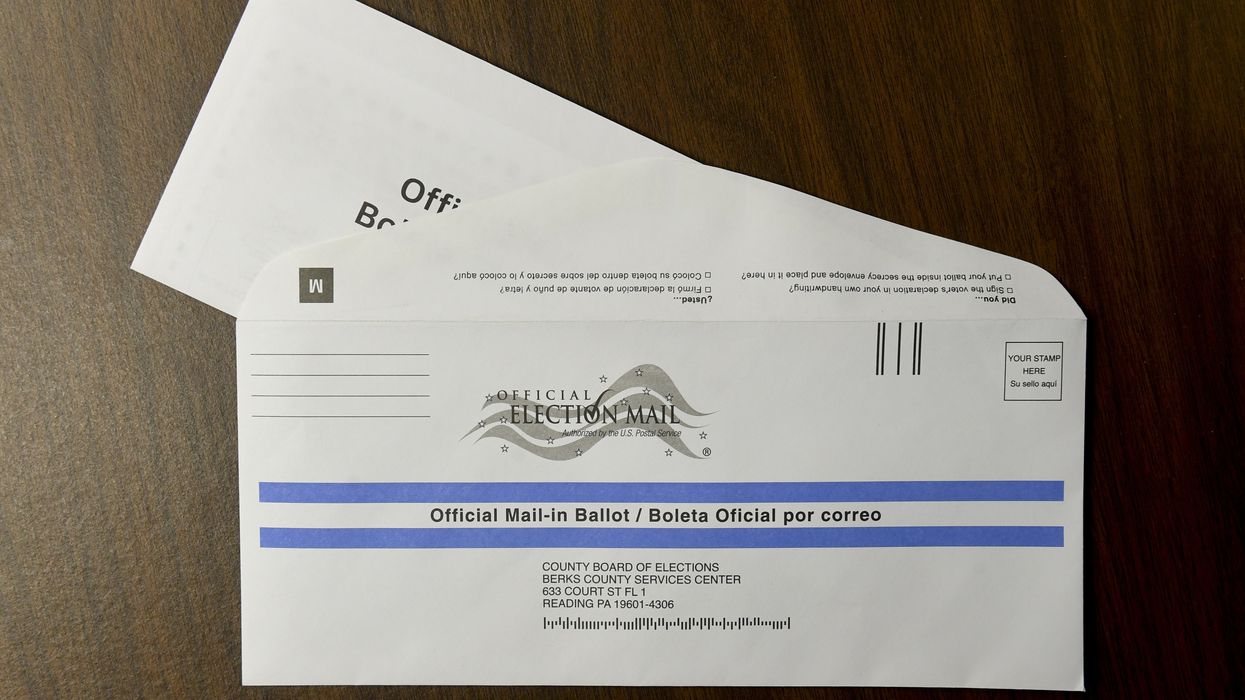Downey is an intern for The Fulcrum and a graduate student at Northwestern's Medill School of Journalism.
In North Carolina, anyone who decides to vote by mail will need to jump through a few hoops if they want their ballot to count in November’s election. Not only will North Carolinians need to return their mail ballot with a signature from two witnesses or a notary, but voters are now also required to submit a copy of their photo ID.
This is just one example of the new election rules some states have implemented since the last presidential election. And while laws that increased voter access actually outpaced those that restricted it last year, according to the Brennan Center for Justice at least 14 states enacted 17 laws that tighten the voting rules – many of which target voting by mail. It is in battleground states where new restrictions on mail-in voting could have a significant impact on who wins come November.
Voting by mail was actually on the rise before the 2020 election, but it was during the Covid-19 pandemic that “states across the political spectrum expanded access to mail voting so that we could run a successful and safe election,” said Liz Avore, senior policy advisor at the progressive Voting Rights Lab.
In 2016, the Pew Research Center found that nearly a quarter of all votes were cast by mail. That number nearly doubled in 2020, with 45 percent of voters said they voted by mail. Early voting numbers are expected to increase again this year, with many voters casting a ballot before Election Day via mail-in voting.
“It’s really been in the years since 2020 that we’ve seen mail voting become a divisive issue,” said Avore. “We’ve seen a lot of states expand access to mail voting over the past few years, but we’ve also seen states go in the opposite direction, making it more difficult to vote by mail.”
Michigan, where President Joe Biden won by just 2.8 percentage points in 2020, passed 12 laws in 2023 that expanded access to mail voting — the most of any state, according to the Brennan Center. One of those new laws codified an online absentee ballot application system that allowed voters to request a ballot from the comfort of their home during the 2020 election. Another new law allows voters to register for a permanent mail voting list so they receive a ballot by mail for every election. In 2020, Michigan sent mail ballot applications to all registered voters, but that system was not made permanent, according to the Voting Rights Lab.
Pennsylvania, which Biden won by just 1.2 points in 2020, has also made it easier for voters to register and qualify for mail-in voting. It’s actually casting a ballot that may prove more difficult than four years ago.
This year’s election will be the first since Pennsylvania adopted automatic voter registration in September 2023. It will also be the first presidential election in which eligible voters can register online for a mail-in ballot and can request an absentee ballot without needing to list a qualifying reason. The expansive measures have not been met without a challenge from state Republicans though.
Unlike 2020, when Pennsylvania required election officials to count all ballots postmarked by Election Day if received within three days of the election, Republicans introduced a new rule in 2022 that said ballots will only be counted if received by Election Day with the “proper date” handwritten on the return envelope. What does it mean for a return envelope to be properly dated? That’s where the confusion lies for many voters who tend to put their birthdate on the envelope as opposed to the date they returned or mailed their completed ballot, said Barbara Smith Warner, executive director of the National Vote at Home Institute.
“You go back to the 1965 Voting Rights Act, you cannot put immaterial requirements onto the right to vote,” Smith Warner said. “When you want to win by keeping people from voting, I would argue that you’re on the wrong side.”
The rule caused thousands of mail-in ballots to be deemed invalid in 2022 and was later challenged by groups and voters throughout the state. Just last month, a federal appeals court ruled in favor of the Pennsylvania GOP. Republican National Committee Chairman Michael Whatley released a statement calling the decision “a crucial victory for election integrity and voter confidence.”
“Pennsylvanians deserve to feel confident in the security of their mail ballots, and this 3rd Circuit ruling roundly rejects unlawful left-wing attempts to count undated or incorrectly dated mail ballots,” he said. “Republicans will continue to fight and win for election integrity in courts across the country ahead of the 2024 election.”
That decision comes as some in the Republican party are working to encourage skeptical conservatives to vote by mail. Arnaud Armstrong, executive director of the Pennsylvania-based Win Again PAC, is among them.
For Armstrong, supporting mail-in voting is not about access, it is about evening the playing field. “The reality is all of this is politics. The reason these laws are passed is because one side or the other thinks it’s going to give them an advantage.” Armstrong said.
After the Democrats success in the 2022 midterms, the Win Again PAC was founded on the belief that encouraging low-turnout voters to cast ballots by mail makes the difference in competitive races.
“That's the only reason we do this,” Armstrong said. “I'm not here to preach the gospel of mail-in voting versus any other kind of voting. This is about early voting and, in Pennsylvania, the only way to vote early is with a mail-in ballot.”
Even former President Donald Trump, who railed against mail-in voting four years ago, now is promoting it to his followers.

Perhaps Trump has changed his tune because voting by mail does not advantage one party more than the other, according to a Stanford University study from 2020. Although Democrats have historically been more likely to vote by mail, in most cases states that offer mail-in voting see higher turnout in their elections.
For vote-by-mail advocates, it is another way for voters to exercise their civic duty.
“What we're finding is that giving voters the option of voting in the manner that works best for them is critical to ensuring that all eligible citizens have a voice in our democracy. It's not like a one-size-fits-all situation for people across the country, so mail voting is a critical piece of that. It allows voters who might not be able to show up to the polls on Election Day to still cast their ballot,” Avore said.
But when states like North Carolina add extra steps to ensure the integrity of their mail-in ballots, voting by mail feels anything but accessible. North Carolina is one of seven states that requires voters to return their mail ballot with a signature from two witnesses or a notary. It is now the only state that requires both a signature and a copy of a photo ID, according to the Voting Rights Lab.
“There are certain processes that we see as being unnecessarily restrictive, and I think the new North Carolina law is a great example of that. Where we're seeing this new law that's in effect is actually creating the strictest mail ballot verification requirements in the country,” Avore said.
Every state requires some kind of mail ballot verification so that election officials can use the voter’s signature, identification number or other identifying information to validate each ballot. In addition, according to the Bipartisan Policy Center, election officials use systems to track each ballot that is issued. This prevents double voting and makes sure that the number of ballots received matches the number of voters who applied for a ballot. In at least 46 states, election offices allow voters to track the status of their mail ballot online, providing voters with a play-by-play of their ballot’s journey from the election office to them and then back to the election office where they can see when the ballot is verified and counted.
North Carolina made permanent some election changes from 2020, like online applications for mail ballots and the opportunity for voters to correct small errors on their ballot envelopes. Yet, these expansive measures are overshadowed by the extraneous steps voters must take if they even want their mail-in ballot to be counted.
“It's voter suppression. I would like to say there's a fine line between voter security and voter suppression, but in that case, in North Carolina, it's not a fine line. It's an obvious attempt to make it harder for people to vote, period,” Smith Warner said. “You have the security three steps ago. All you’re doing now is trying to keep people from voting.”




















